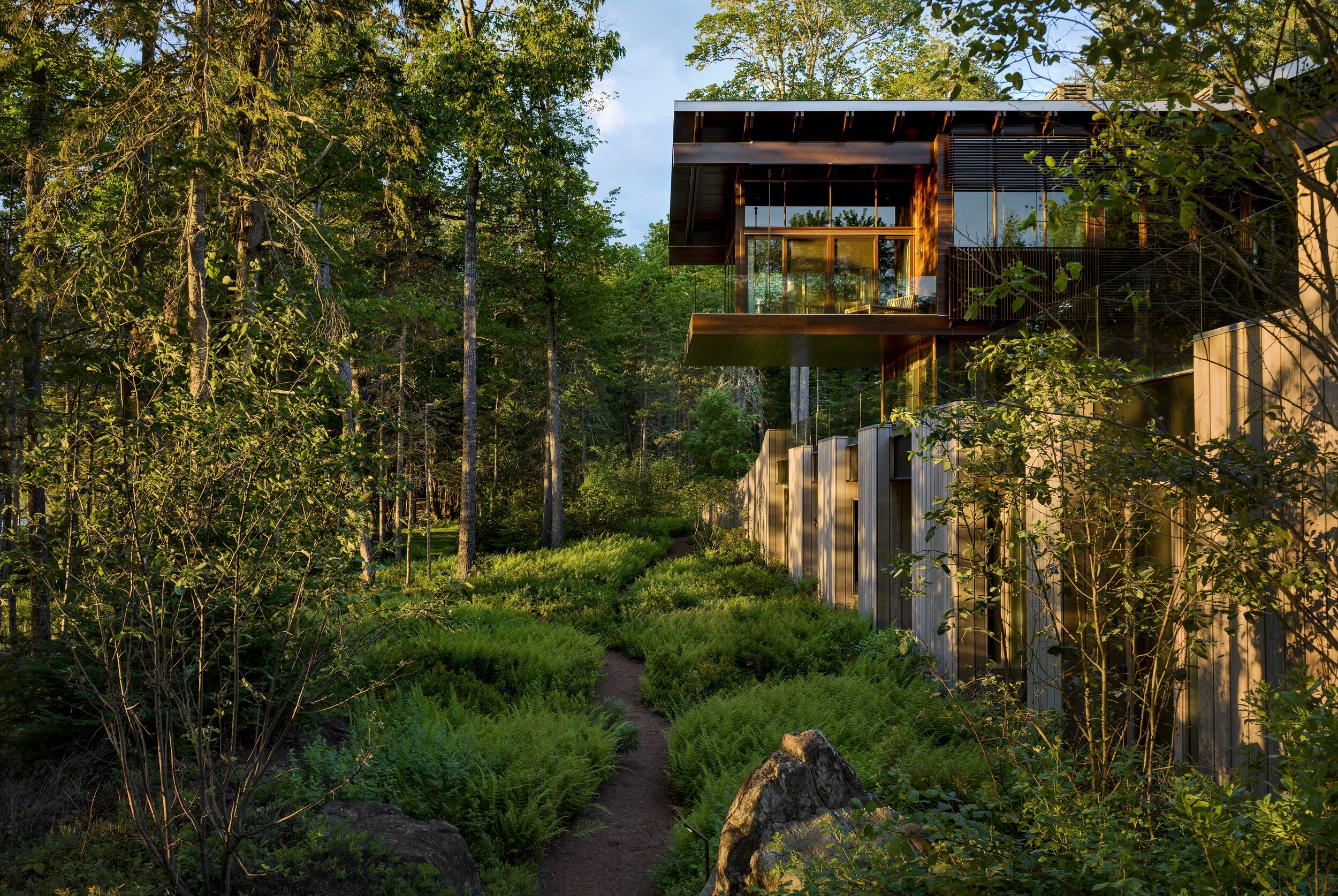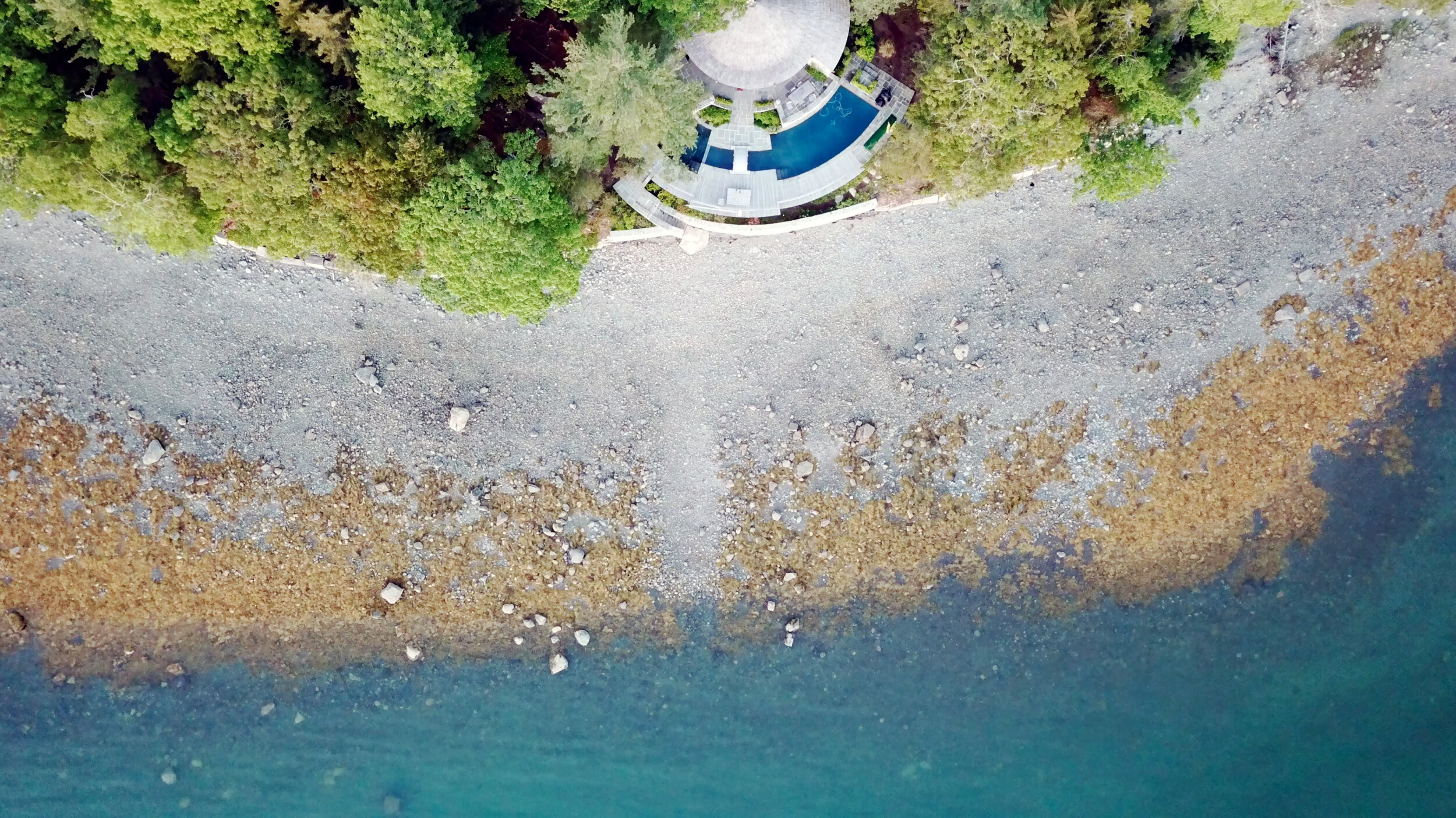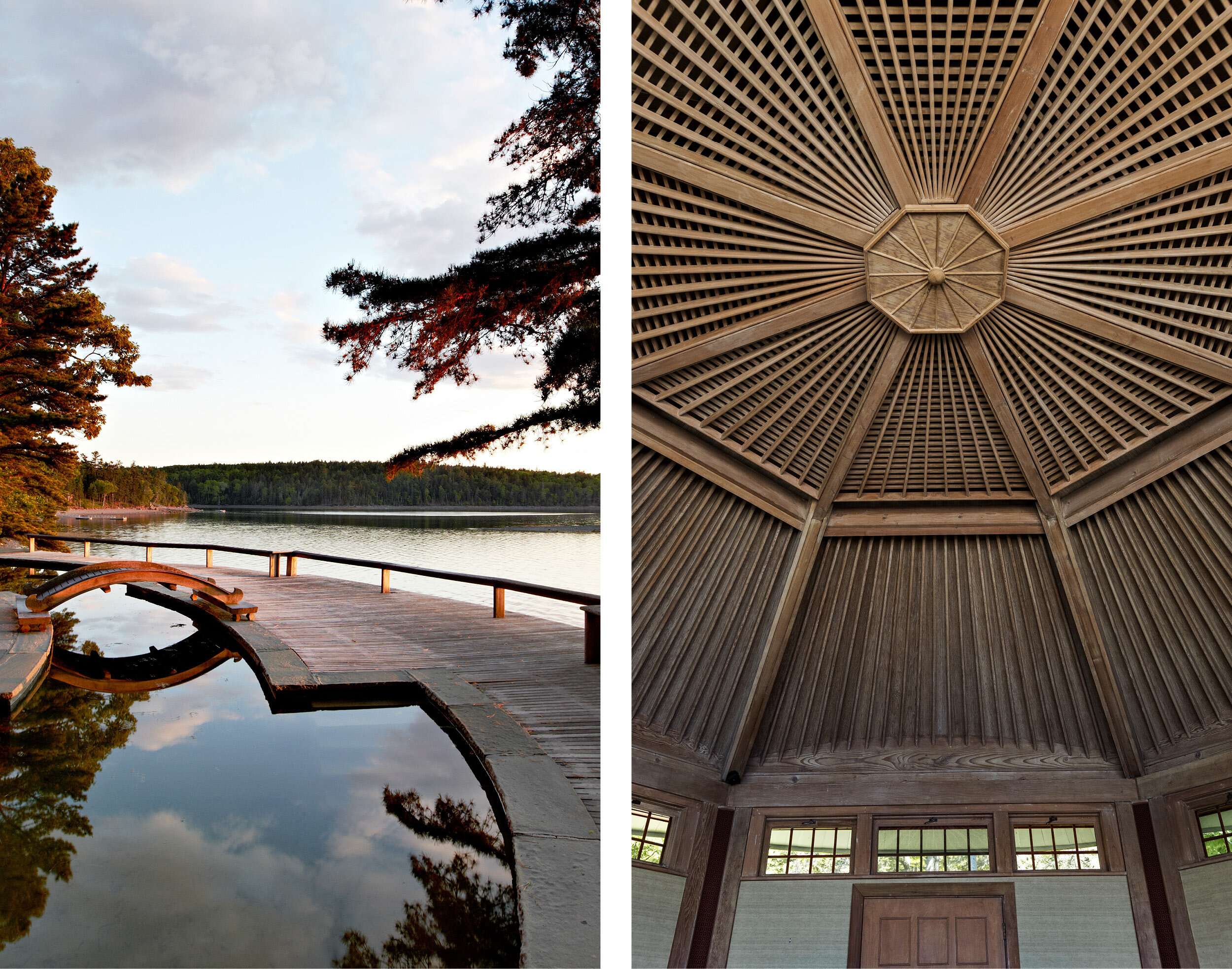
RETREAT
The Maine coast line, its appearance both lush and craggy, hides a secret gem. That secret, an escape from the city, a private retreat, both abundant in history, restored and updated is August Moon.
Situated on a waterfront property overlooking Maine’s Western Bay, August Moon was originally the summer camp of the late Brooke Astor. Named by her after the Chinese mid-autumn harvest festival, the two original structures – a separate glass teahouse and a small cottage with pool – were designed by the architect, Robert Patterson in the 1960’s.
The craftsman detailed cottage has a hovering, conic roof with Blue Hill mountain visible in the distance beyond. Both structures have been meticulously researched, restored, and modernized to complement a new program for a young family. For the restoration and new builds, we sought to find original materials used by Patterson, coming across original design documents at the Mount Desert Island Historical Society, which informed our concepts.
The new residence is situated to the north where two ridges come together. It takes its cues from the existing rocks, waterfront, trees and topography of the site, paying homage to the existing Patterson cottage. The building sits in a saddle in the landscape beyond the garden ridge that separates the Pool Pavilion and Guest House from the Main House.
At first glance it would seem to be organized in three volumes – a kitchen below its lowest plane; a living and dining area with an ascending roof that is pinned by a large multi-story hearth and stairs; and a third upper roof that pinwheels out into the trees with the master bedroom suite hung within, creating the impression of a glass treehouse hovering over the rocky coastline. It peeks out from its safe haven.
August Moon deceives the eyes as a fourth concealed volume at ocean level, set into the hillside presents five bedrooms with en-suite baths, a family game room, and service program. Half the house is rendered nearly invisible because the roof of this volume has been planted as a green lawn overlooking the water. Hiding in plain sight.
Given the natural beauty of the site and respect for the context, SPAN limited the palate to local natural materials; local cedar, Douglas fir and stone from the same local quarry that Patterson used, and an insulated zinc-coated copper roof that blends with the sky. The shape of the new roof mirrors the form of the hills and is itself an unfolding form – it is the great gesture of the building.
A new corten steel Moon Gate connects the paths back through to the gardens. The rooms are a collage of interior and exterior spaces. Natural light and shadow are let in through the window walls and skylights from the surrounding forest and dance on the surfaces within, a form of natural artistry.
Furniture and art are considered an integral part of the house, much of it custom designed by SPAN and built by local artisans with both Chinese and mid-century influences including the tables, credenzas, and beds throughout. The dining room’s cut glass chandeliers by David Weisman, utilize leaves, twigs and the clients favorite flowers from the site were reinterpreted in cast metal and porcelain.
Historic maps and books, as well as pen and ink drawings of the flora, fauna and natural phenomena of Acadia National Park and Mt. Desert Island were sourced, adding a sense of place and authenticity.
The experience of walking through the house parallels that of meandering through the landscape. Everywhere natural light is let in the through generous, mostly vertical windows, window walls and skylights, this in turn juxtaposes areas of shadow, adding drama to the interiors. The connection to the surrounding forest is ever-present; the identity and specificity of this house and property are reinforced at every view and angle.
In addition to the primary residence, the new program also includes a garage and guest cottage. Surfaces are punctuated by custom metal steamer trunks and custom rugs, graceful details that recount the historic patterns of the original cottage. August Moon has developed its own language through design; it blends with nature whilst maintaining a firm grip on its architectural roots, rising up out of the ground in its bold, jutting form. The sprawling nature of the complex of houses feels organic and sentimental with a keen eye on the future of compound design.

Photographers: Robert Karosis, William Waldron, Lucien Pelsinski








































